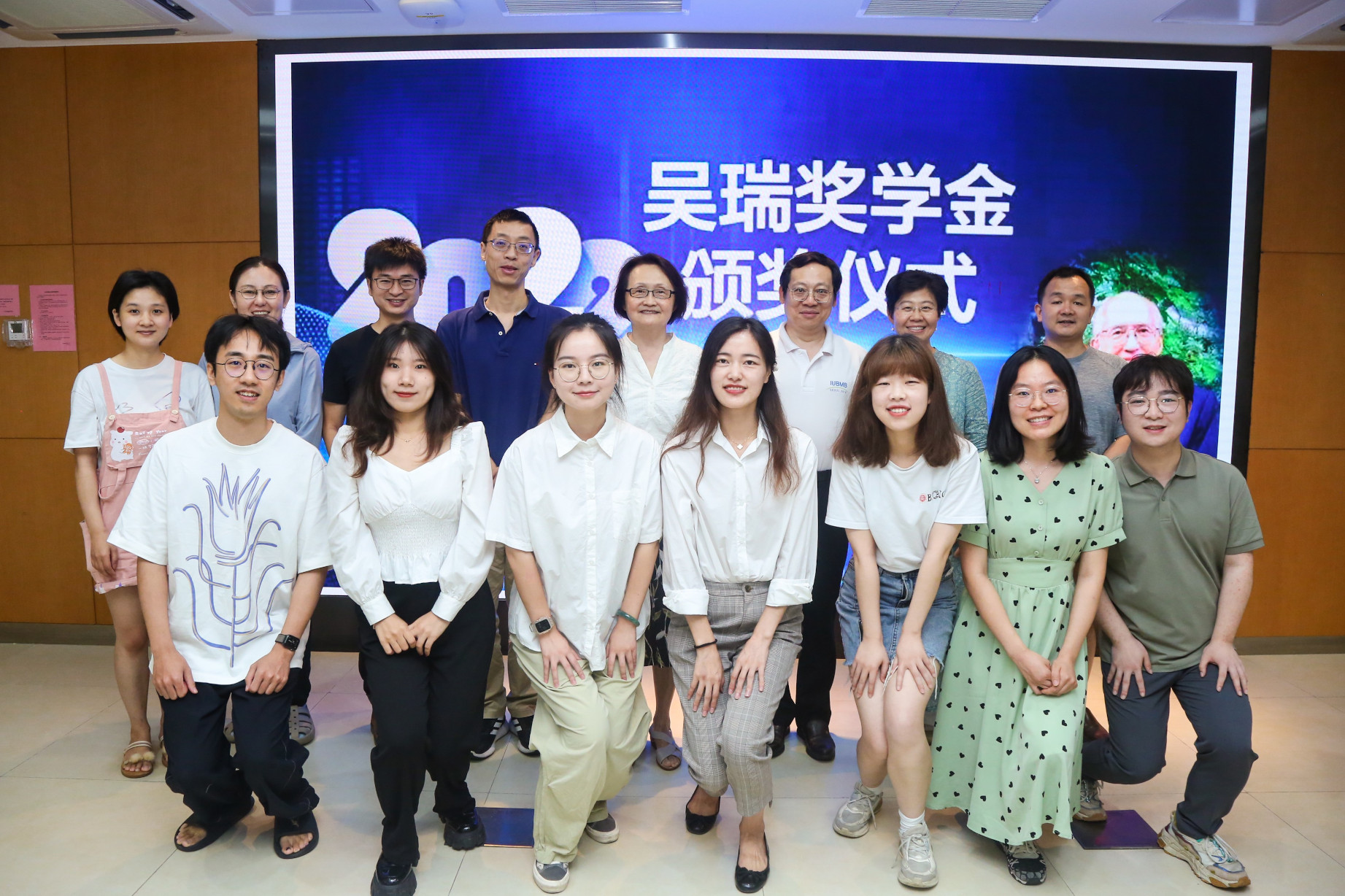THE RAY WU PRIZE
2022 Ray Wu Prize Winner
![]()
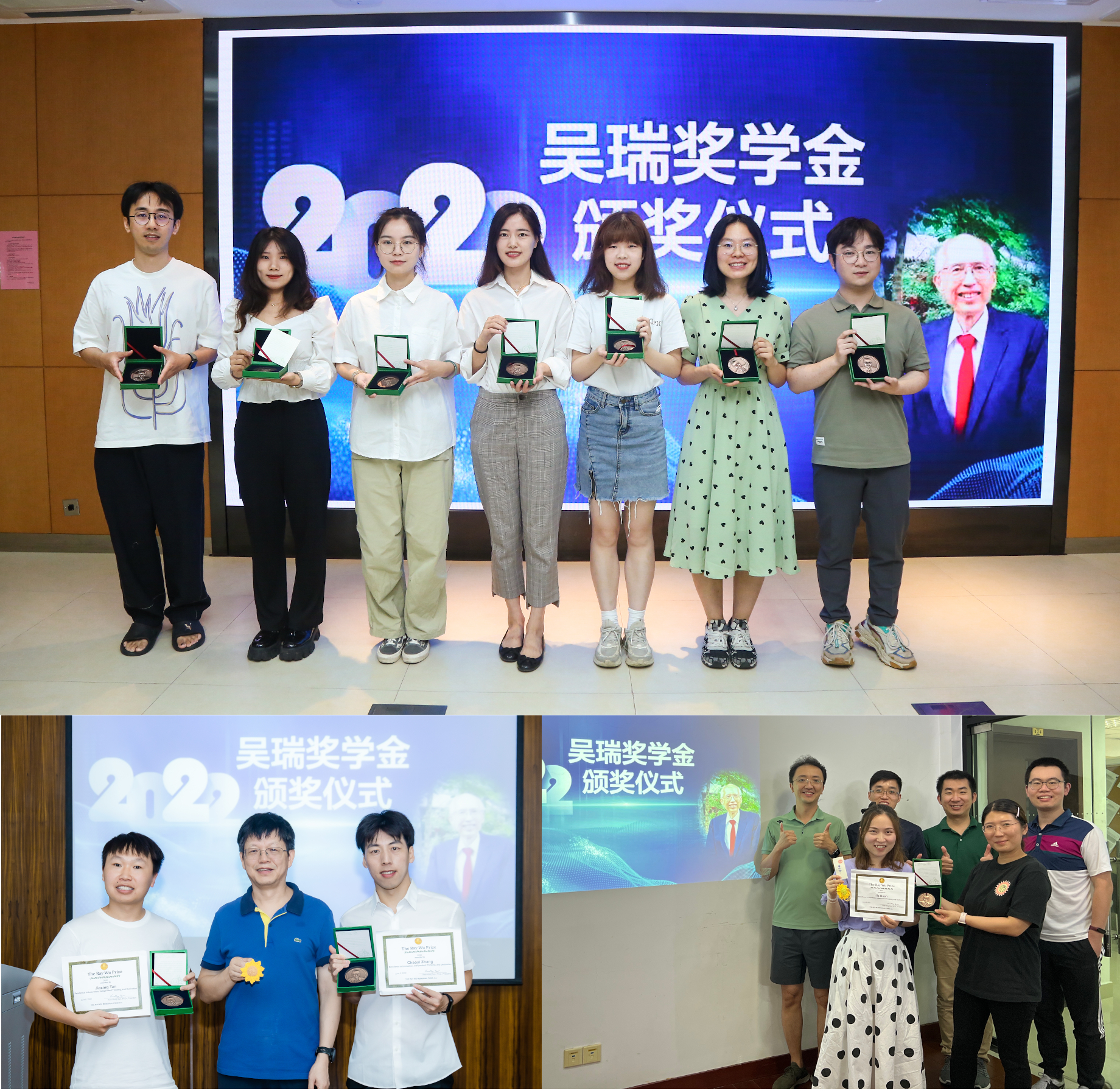
Jia Duan
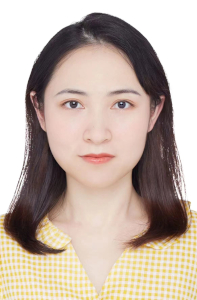 Background: Ms. Duan received her bachelor degree from Wuhan University in 2017, and is conducting her Ph.D. research in the laboratory of Dr. Eric Xu in Shanghai Institute of Materia Medica, CAS. Her main interests are structure and function of G protein-coupled receptors (GPCRs). She has three major academic achievements: 1. introduced the NanoBiT tethering method to stabilize GPCR and G protein complexes. 2. has solved the first full-length glycoprotein hormone receptor LHCGR in both inactive and active states. 3. distinguished two structures of ICL2 and further confirmed that ICL2 was critical for Gq-coupling of galanin receptor 2 and even other class A GPCRs.
Background: Ms. Duan received her bachelor degree from Wuhan University in 2017, and is conducting her Ph.D. research in the laboratory of Dr. Eric Xu in Shanghai Institute of Materia Medica, CAS. Her main interests are structure and function of G protein-coupled receptors (GPCRs). She has three major academic achievements: 1. introduced the NanoBiT tethering method to stabilize GPCR and G protein complexes. 2. has solved the first full-length glycoprotein hormone receptor LHCGR in both inactive and active states. 3. distinguished two structures of ICL2 and further confirmed that ICL2 was critical for Gq-coupling of galanin receptor 2 and even other class A GPCRs.
Citation:Ms. Duan enlightens members of the interview committee with her in-depth understanding of structural biology, both in terms of technical skills and structure-function relationship. In the experiments, she was responsible for protein purification and structure determination. For GPCRs, the level of recombinant protein expression and stabilization of the protein complex during sample preparation are difficult problems to deal with. She systematically applied innovative techniques to solve these problems, independently. She not only carried out the experiments with rigor, but also analyzed the results on her own and wrote large portion of the manuscripts for publication. She is very creative, and often takes the initiative to move the project forward. She discussed the biological relevance of her structural work at the level that even impresses people who are not structural biologists, which makes her standing out among students in the field of structural biology. Her conservations are sophisticated and intellectually stimulating. Her scientific rationale is clear and she has the ability to communicate with a straight-foward style. Her visions for future research are strong, including extension to disease-related topics.
This prize is sponsored by The Yu and Wei Foundation.
Tianyi Wang
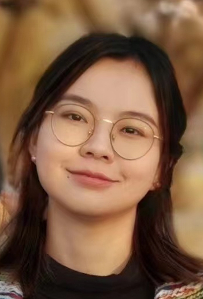 Background: Ms. Wang obtained her bachelor degree from Sichuan University in 2018, and entered the Ph.D. program in Molecular Paleontology Lab at the Institute of Vertebrate Paleontology and Paleoanthropology at the Chinese Academy of Sciences. Her advisor is Dr. Fu Qiaomei. Tianyi and her colleagues used the latest recovery technology of ancient DNA to provide an in-depth dissection of the evolutionary pattern and the history of ancient human populations in southern China. Their study identifies ancient Asian populations that have never been observed previously and have not made major contributions to present-day populations, which resolves the evolutionary and changing history of ancient populations in the Guangxi and Fujian regions of southern China as well as in Southeast Asia.
Background: Ms. Wang obtained her bachelor degree from Sichuan University in 2018, and entered the Ph.D. program in Molecular Paleontology Lab at the Institute of Vertebrate Paleontology and Paleoanthropology at the Chinese Academy of Sciences. Her advisor is Dr. Fu Qiaomei. Tianyi and her colleagues used the latest recovery technology of ancient DNA to provide an in-depth dissection of the evolutionary pattern and the history of ancient human populations in southern China. Their study identifies ancient Asian populations that have never been observed previously and have not made major contributions to present-day populations, which resolves the evolutionary and changing history of ancient populations in the Guangxi and Fujian regions of southern China as well as in Southeast Asia.
Citation: Ms. Wang’s overall performance during the interview was very impressive. She has clearly been the one with many of the thoughtful ideas and done most of the data analyses. In her research, she paid special attention to the correlation of multiple species including plants and microorganisms in co-evolution. Her understanding and articulation of the projects in the specific subject and the field in general are outstanding and beyond expectation of any graduate students. Ms. Wang is outstanding in verbal communications, mainly due to her deep understanding of the subject, her curiosity and motivation to excel in what she does. She is extraordinarily confident, motivated, and is not reluctant to disagree with the conclusions from leading professors in the field. For future research, she has a clear research strategy backed up by comprehensive methodology, which is indictive of success.
This prize is sponsored by The Yu and Wei Foundation.
Chen Liu
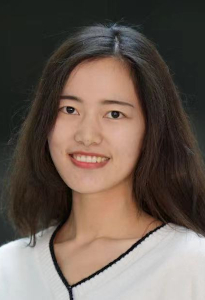 Background: Ms.Liu earned her bachelor degree from Nanjing University of traditional Chinese Medicinein 2016, and is conducting her PhD research in Military Academy of Sciences.By applying a research paradigm of single-cell transcriptome sequencing (strt-seq2 / 10x) – immunophenotypic discrimination of special populations – experimental validation of single-cell function in vitro and in vivo, She and co-workers aimed to investigate the origin, molecular regulation of lineage specialization and tissue locus heterogeneity of T cells and ILCs in multiple organs (hematopoietic, lymphoid and non lymphoid organs) at an early stage of human embryonic development across time (8-12 weeks’ gestation), in order to provide a theoretical basis for the study of lymphocyte regenerative strategies in vitro.
Background: Ms.Liu earned her bachelor degree from Nanjing University of traditional Chinese Medicinein 2016, and is conducting her PhD research in Military Academy of Sciences.By applying a research paradigm of single-cell transcriptome sequencing (strt-seq2 / 10x) – immunophenotypic discrimination of special populations – experimental validation of single-cell function in vitro and in vivo, She and co-workers aimed to investigate the origin, molecular regulation of lineage specialization and tissue locus heterogeneity of T cells and ILCs in multiple organs (hematopoietic, lymphoid and non lymphoid organs) at an early stage of human embryonic development across time (8-12 weeks’ gestation), in order to provide a theoretical basis for the study of lymphocyte regenerative strategies in vitro.
Citation: Ms. Liu clearly showed her independent and self-initiative side during her interview. She is well-versed in the two major studies on human fetal thymus/T cells and ILC. She articulated her projects very well, and discussed its significance and future directions. She has accurate understanding of the fields related to the subject, correct and sensitive awareness of critical unknown issues. Her initiative and independent efforts in finishing the ILC project after the thymus project are confirmed by her references. The research is novel and her view on neuroimmunity is supported by a complete knowledge system and logic. She described the ILC study well and proposed to work with Dr. Qi Hai at Tsinghua to study their interactions with neurons in the gut/lung tissues, with very insightful ideas. Her training/education in biomedical and medical sciences, combined with her training in scRNAseq study, will allow her to pursue the ILC/neural interactions. Her discussion of the research projects is intelligent, and her motivation and curiosity are clearly demonstrated by her ideas about ILC and neural interactions in tissues with enriched ILCs. Her enthusiasm for neuroimmunity, and position in an excellent research platform provided an optimistic outlook that more exciting results will come soon. She is encouraged to further expand her view in science and may look for clinical applications for her research discoveries. She presents herself in a nice, professional manner.
This prize is sponsored by The Yu and Wei Foundation.
Hui Shen
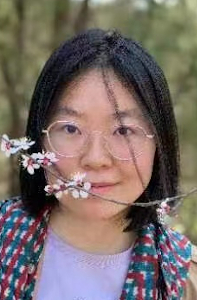 Background: Ms. Shen received her bachelor degree from Northwestern A & F University in 2016, and entered the Ph.D. program in Peking University in the same year. During her doctoral study, Hui mainly focused on the capture and culture of totipotent stem cells. Her research addresses this fundamental process through inhibition of the RNA splicing complex, and achieved, unexpectedly for the first time, the capture and culture of totipotent stem cells similar to in vivo 2-4 cell embryos. This discovery not only has changed the understanding of new functions of RNA splicing in early embryonic development, but also provides a breakthrough strategy to estabilish novel cell culture through interference of RNA related pathways, with great implications for related studies in stem cells, developmental biology and molecular biology.
Background: Ms. Shen received her bachelor degree from Northwestern A & F University in 2016, and entered the Ph.D. program in Peking University in the same year. During her doctoral study, Hui mainly focused on the capture and culture of totipotent stem cells. Her research addresses this fundamental process through inhibition of the RNA splicing complex, and achieved, unexpectedly for the first time, the capture and culture of totipotent stem cells similar to in vivo 2-4 cell embryos. This discovery not only has changed the understanding of new functions of RNA splicing in early embryonic development, but also provides a breakthrough strategy to estabilish novel cell culture through interference of RNA related pathways, with great implications for related studies in stem cells, developmental biology and molecular biology.
Citation: It is highly innovative to restore cell totipotency from the perspective of spliceosome. She has an excellent understanding and insights into the regulation of stem cell totipotency and pluripotency. Hui was confident in answering most of the relevant questions, and showed that she played an important role in helping the new project. Familiar with international and domestic competitors and their research. She demonstrated independence in formulating new ideas, but need to pay attention to the idea that spliced introns may promote cell differentiation and rethink about the subject from a different angle. She gave a concise and clear presentation and appears to be ambitious.
This prize is sponsored by The Yu and Wei Foundation.
Haiqing Xiong
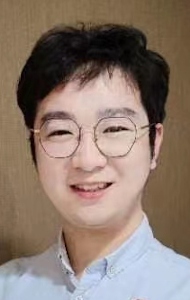 Background: Mr. Xiong graduated summa cum laude from Hubei University with a B.S. degree in 2016., and is conducting his Ph.D. study under the direction of Dr. He Aibin in Peking University since 2018. Haiqing’s project involves developing single-cell epigenetic techniques to explore the mechanisms of the internal and external factors driving cell fate determination in organ development and diseases.Haiqing and his colleagues successfully developed bioinformatic tools: sc-itChIP-seq and CoBATCH, taking single-cell ChIP-seq to its highest level. Recently, they invented CoTECH to simultaneously analyze chromatin occupancy and transcriptome in the same cell by combining CoBATCH and scRNA-seq. His study revealed new mechanisms of distinct epigenetic control of transcriptional regulation in two waves of endothelial-to-hematopoitic transition.
Background: Mr. Xiong graduated summa cum laude from Hubei University with a B.S. degree in 2016., and is conducting his Ph.D. study under the direction of Dr. He Aibin in Peking University since 2018. Haiqing’s project involves developing single-cell epigenetic techniques to explore the mechanisms of the internal and external factors driving cell fate determination in organ development and diseases.Haiqing and his colleagues successfully developed bioinformatic tools: sc-itChIP-seq and CoBATCH, taking single-cell ChIP-seq to its highest level. Recently, they invented CoTECH to simultaneously analyze chromatin occupancy and transcriptome in the same cell by combining CoBATCH and scRNA-seq. His study revealed new mechanisms of distinct epigenetic control of transcriptional regulation in two waves of endothelial-to-hematopoitic transition.
Citation: Mr. Xiong did an outstanding job in answering all relevant questions about his bioinformatic tools and potential biological applications. His new bioinfomatic tools addressed unique biological questions. He showed creative insights into single-cell technology and was able to generate new ideas that are different from those of the mentor, but a bit overclaim of the conceptual value of his method. His knowledge range in life science may need to be largely inceased, especally hot topics in bioscience, which will offer a broad space for future development. He has the skill of effective communications.
This prize is sponsored by The Yu and Wei Foundation.
Lihui Dong
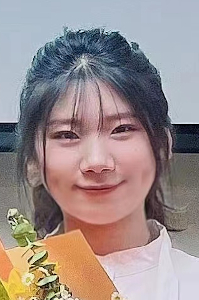 Background: Ms.Dong received her bachelor degree from Sun Yat-sen University in 2017, and entered the Ph.D. program in the laboratory of Dr.Xu Meng at Tsinghua University. She was intrigued by the field of tumor immunology and RNA modifications. Lihui’s work focused on how macrophage-dominated immunosuppressive tumor microenvironment dampened the anti-tumor activity of T cells. The results revealed that C1q+ macrophages under the control of the METTL14-YTHDF2 axis maintain the equilibrium between cytotoxic and dysfunctional CD8+ T cells. Her work speculated the epi-transcriptional regulation functions as an additional mechanistic layer directing the immunosuppressive capacity of macrophages.
Background: Ms.Dong received her bachelor degree from Sun Yat-sen University in 2017, and entered the Ph.D. program in the laboratory of Dr.Xu Meng at Tsinghua University. She was intrigued by the field of tumor immunology and RNA modifications. Lihui’s work focused on how macrophage-dominated immunosuppressive tumor microenvironment dampened the anti-tumor activity of T cells. The results revealed that C1q+ macrophages under the control of the METTL14-YTHDF2 axis maintain the equilibrium between cytotoxic and dysfunctional CD8+ T cells. Her work speculated the epi-transcriptional regulation functions as an additional mechanistic layer directing the immunosuppressive capacity of macrophages.
Citation: Lihui was thoughful in answering questions related to the projects, with good understnading of the significance of the findings. She seems to have contributed significantly to the projects related to YTHDF1 in DC and certain macrophages. One of her appraoches is focused on reversal of the immune suppresive microenvironment in order to improve tumor immunotherapy. Lihui showed broad knowledge of tumor immunotherapy, with some interesting ideas. Her indepenence and reasoning are among top PhD students. Lihui was very articulate in discussing her ideas, with clear motivation and drive to continue this line of research. Her discussions are enthusiatic, but may need to be more focused on her key discoveries.
This prize is sponsored by The Yu and Wei Foundation.
Zhijie Cao
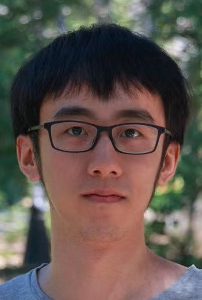 Background: After graduating with bachelor degree from Peking University in 2017, Mr. Cao began his Ph.D. study in the field of single-cell omics data analysis under the direction of Dr. Gao Ge in Peking University. His PhD research has primarily been focused on developing computational methods to integrate highly heterogeneous single-cell omics data, starting with the single-omics (transcriptomics) integration method called Cell BLAST, and then evolving into a multi-omics integration framework called GLUE. These integration methods aim to facilitate cross-dataset comparative analysis, automate cell annotation, and infer cross-omics regulatory interactions.
Background: After graduating with bachelor degree from Peking University in 2017, Mr. Cao began his Ph.D. study in the field of single-cell omics data analysis under the direction of Dr. Gao Ge in Peking University. His PhD research has primarily been focused on developing computational methods to integrate highly heterogeneous single-cell omics data, starting with the single-omics (transcriptomics) integration method called Cell BLAST, and then evolving into a multi-omics integration framework called GLUE. These integration methods aim to facilitate cross-dataset comparative analysis, automate cell annotation, and infer cross-omics regulatory interactions.
Citation: Mr. Cao clearly played an important role in developing the two bioinformatics methods, with self-initiative and computer skills. He pointed out clearly his novel advances over other methods. The GLUE algorithm he developed meets the current needs and has a great potential for further development. Mr. Cao is best trained with computer science and informatics, and has excellent future plans. Mr. Cao is able to be actively engaged in relevant discussions of his own informatics methods and other methods in genenal for biological applications, but it will be more impactful to expand his knowledge base in life sciences in order to communicate more effectively with fellow biologists. He also realized that the effectiveness of informatics methods may be significantly improved through enhanced experimentation and causal analysis.
This prize is sponsored by The Yu and Wei Foundation.
Chaoyi Zhang
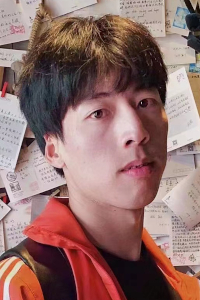 Background: Mr. Zhang received his Bachelor’s degree from Wenzhou Medical University in 2016, and entered the Ph.D. program in Zhejiang University in 2017. His advisor is Dr. Hu Hailian. Chaoyi worked out all the de novo surgical and imaging acquisition procedures, and designed the experimental protocols combining the mTPM (for dual-color high-resolution imaging of more than one neuron type) with GRIN lens (for greater imaging depth) and optogenetic technologies. With this innovative approach, he delineated a prefrontal microcircuit, involving the interconnected vasoactive intestinal polypeptide (VIP), parvalbumin (PV), and pyramidal (PYR) neurons, for social competition.
Background: Mr. Zhang received his Bachelor’s degree from Wenzhou Medical University in 2016, and entered the Ph.D. program in Zhejiang University in 2017. His advisor is Dr. Hu Hailian. Chaoyi worked out all the de novo surgical and imaging acquisition procedures, and designed the experimental protocols combining the mTPM (for dual-color high-resolution imaging of more than one neuron type) with GRIN lens (for greater imaging depth) and optogenetic technologies. With this innovative approach, he delineated a prefrontal microcircuit, involving the interconnected vasoactive intestinal polypeptide (VIP), parvalbumin (PV), and pyramidal (PYR) neurons, for social competition.
Citation: Mr. Zhang did an outstanding job in discussing his exciting projects, and its significance. His work is systematic and resulted in defining the brain circuit for how animals make behavioral choices when facing other individuals of different levels in social status. The ability to learn and complete difficult experiments independently is strong. The in-body two-photon experiment in social behavior is beautifully completed. His issue-probing and hands-on ability are first-rated. He appeared to be confident, open-minded, and very relaxed during our discussions. He is constantly exploring new ideas and proactively steps into other research areas. He has explored several labs for post-doc training.
This prize is sponsored by The Yu and Wei Foundation.
Jiaxing Tan
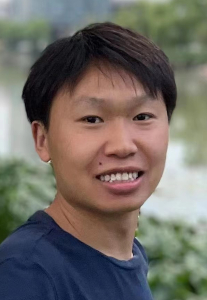 Background: Mr. Tan completed his bachelor degree from Tianjin Medical University in 2017, and entered the Ph.D. program in Zhejiang University in the same year. His advisor is Dr. Zhu Yongqun. Mr.Tan’s research interest is in the area of molecular mechanisms and structural basis of pathogen host interactions. Using mainly single particle reconstruction by cryo EM and protein crystallography, he and his colleagues have solved the three-dimensional structure of a bacterial flagellar motor and elucidated the molecular mechanism by which the flagellar motor drives hte high-speed motility of bacteria.
Background: Mr. Tan completed his bachelor degree from Tianjin Medical University in 2017, and entered the Ph.D. program in Zhejiang University in the same year. His advisor is Dr. Zhu Yongqun. Mr.Tan’s research interest is in the area of molecular mechanisms and structural basis of pathogen host interactions. Using mainly single particle reconstruction by cryo EM and protein crystallography, he and his colleagues have solved the three-dimensional structure of a bacterial flagellar motor and elucidated the molecular mechanism by which the flagellar motor drives hte high-speed motility of bacteria.
Citation: Mr. Tan described the project in terms of its difficulty and cryoEM technology with clarity. He has strength in basic knowledge of protein science research and approaches for its broad applications in life sciences. He has unique insights on improvement of research tools. He showed a desire to move out of the comfort zone, to explore new areas, and to use structural biology as a tool rather than a primary research goal. His outgoing personality is organically combined with strong ambitions and goals. He is very motivated and intelligent, but still is exploring future research directions such as engineering of mammalian cells mentioned in his discussion.
This prize is sponsored by The Yu and Wei Foundation.
Lin Di
 Background: Ms.Di received her BS degree from Huazhong university of science and technology in 2018, and entered the Ph.D. program in the laboratory of Dr. Huang Yanyi at Peking University. The current field she devoted to is development of rapid and sensitive transcriptome profiling methods adapted to the next-generation sequencing. So far, she has successfully developed an RNA-seq method possessed with forementioned advantages and named it as SHERRY.
Background: Ms.Di received her BS degree from Huazhong university of science and technology in 2018, and entered the Ph.D. program in the laboratory of Dr. Huang Yanyi at Peking University. The current field she devoted to is development of rapid and sensitive transcriptome profiling methods adapted to the next-generation sequencing. So far, she has successfully developed an RNA-seq method possessed with forementioned advantages and named it as SHERRY.
Citation: Ms. Di seemed to be very self-initiative and independent in combining her biology background with the new genomic tools. She is very familiar with the process of developing the novel technique. She has also been the one with both wet-/dry-lab experience in the publisehd projects. Although not majored in computer or chemistry in college, Ms. Di clearly has acquired the bioinformatic skills as well as their utilzation in addressing important biological questions such as somatic mutations in normal looking tissues and single cell study in the germinal center. The candidate has demonstrated creative thinking and in-depth understanding of the current research. She knows the in and out of different sequencing methods. There could be more appriaciation of the limitations in the Tn5-based technology. Ms. Di was very artuculate in answering most questions, with clear logic and precision. She writes well. Her motivation and enthusiasm in biomedical research are obvious and will likely drive her to achieve a great deal in her postdoc career and beyond. At the same time, she is still in a very early stage of formulating a solid vision in life science research.
This prize is sponsored by The Yu and Wei Foundation.
RWMF members at a 2022 Ray Wu Prize award ceremony
